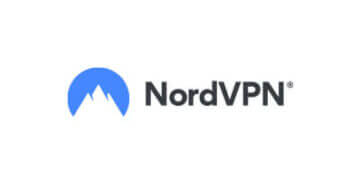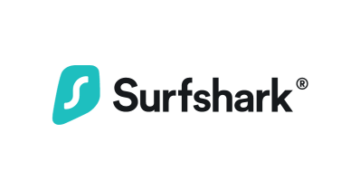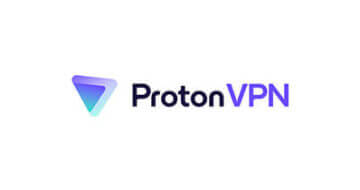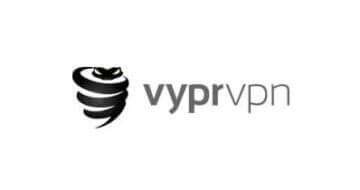Whether you are browsing remotely or just wish to enjoy basic online privacy, using a Virtual Private Network (VPN) is a great idea. With the best VPN for privacy in 2023, you can easily hide your online activities and therefore remain anonymous.
A VPN works by encrypting your internet connection, thus protecting your sensitive information. As such, all your browsing habits will be private and confidential.
Here at VPNPro.net, we have guides that explain everything you need to know about the top VPNs and their features. In this article, we are going to focus on finding you the best VPN service for privacy.
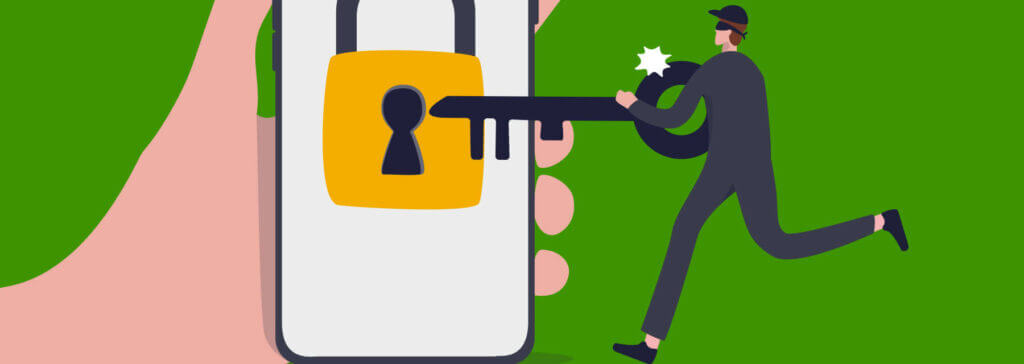
Three Reasons Why You Need a VPN for Privacy
To stay safe online, a VPN is an invaluable asset. VPNs perform several crucial tasks to ensure that your online security is guaranteed. Here are three most common reasons why you should look for, and use, VPN when going online.
1. To Hide Your IP Address and Other Information
Websites, apps, streaming services, and other internet destinations usually phish out IP addresses among other information to identify you. A VPN routes your internet connection through its servers thereby hiding your actual IP address.
2. To Prevent Cyber and Distributed Denial-Of-Service (DDoS) Attacks
Even though VPN services are designed to be secure, some do not fully shield you from hacker activities, phishing attempts, and DDoS attacks. With the best VPN for privacy, you can curb all possible attacks with little to no hassle.
3. To Hide Your Online Activity from Third-parties
All the best VPN services for privacy encrypt your connection to protect you from third parties on your networks. With an unprotected internet connection, these parties can see your internet activity and track you, which you clearly don’t want.
What to Look For in VPN Privacy
While VPNs are designed for different purposes, they have one thing in common. They all work to make your online activities private.
Unfortunately, not all of these services offer all the key features needed for privacy. For your VPN to have privacy, it should have the following attributes:
Does not collect identifying logs
Government agencies, advertisers, internet service providers, and hackers can use internet traffic logs to track you. To fully protect your identity from leaking, the best VPN service for privacy should have a no-logs policy.
Uses robust encryption
There are many complaints online about some VPN services with weak encryption protocols that can lead to the leaking of user data. The best VPN for privacy will use strong encryption to keep all users’ information safe from phishing.
Inbuilt DNS leak protection
The Domain Name System, also referred to as the internet’s “phonebook”, is another aspect that you might want to protect using a VPN. The best VPN for privacy will come with built-in DNS leak protection to prevent unencrypted DNS requests.
In-app kill switches
A VPN’s in-app kill switch is meant to cut off an internet connection whenever the VPN is switched off. This prevents third parties from accessing user information afterward.
Money-back guarantee
Additionally, the best VPN for privacy should have a money-back guarantee. This allows the user to test the VPN service and make sure that they are getting exactly what they signed up for.
How To Set up A VPN For Privacy
After picking the best VPN service for privacy, you should download and install it on your device. The process is similar to other program installations.
Below is a quick list on on how to install a VPN. See our guides on how to setup a VPN for home network here and for routers here.
- Visit the VPN’s official website and download the software. Ensure you pick the version that’s fully compatible with the device you intend to use.
- Run the APK and follow the setup wizard to the end.
- After the installation is successful, a new network connection route will appear on your mobile device, laptop, or PC. This will be the route through which all your internet traffic will take every time you use the VPN.
- Launch the VPN, pick your preferred server location and click on ‘connect’. Once connected, you can head over to the websites you want to visit and enjoy your privacy.
Are Free VPNs Good for Privacy?
Several companies offer basic VPN services that are free to use. So are these free services equally as good as their premium counterparts? Simply put, no.
As expected, there are some catches that typically begin with data caps. For example, generally, a free VPN will limit you to a monthly data cap of 500–750 MB.
Other issues include in-app adverts, session limits, and the basic lack of service-level concurrence. Generally, free plans are fine for basic needs such as protecting a laptop’s wireless hotspot traffic.
How We Rate the VPN Privacy
Relying on reviews or carrying out a single test is unlikely to give the whole picture. Therefore, in order to establish which is the best VPN service for privacy, we conduct a careful scrutiny of various features.
Here are the criteria we use in our ranking process:
Available servers and server locations
For the sake of privacy, a greater number of servers means more options for keeping your internet browsing on the down-low. Moreover, the more servers located in different countries, the greater your ability to get around geo-restrictions and access blocked sites privately.
This is essentially why VPNs with large numbers of servers spread throughout many countries will be included on our list of the best VPN service for privacy.
Adherence to terms and conditions
Privacy and security are quite crucial for your online presence. The best VPN for privacy must commit to adhering to their terms and conditions that concern privacy.
These include keeping your identity hidden with a no-logs policy whenever you use the VPN service.
Reputation and trustworthiness
A background check into how a VPN service has been performing in the past is also crucial. When looking for the best VPN for privacy, we recommend those with proven records of reliability.
Flexibility
Many people prefer VPNs that are compatible with any device without compromising user privacy. Therefore, we also look to see if the VPN is compatible with iOS, Android, Windows, Linux, routers, and more.
We also check on the number of connections allowed. Any VPN that is able to pull all this off effortlessly will be considered as one of the best VPN for privacy.

Top 5 Recommended VPNs for Privacy
To find the best VPN for privacy, we compare each VPN against our detailed criteria list. Here are the top five VPNs in 2022, alongside what makes them stand out:
NordVPN

NordVPN has an impressive reputation mainly due to its security algorithms. Its NordLynx and Double VPN systems ensure no website or trackers can monitor your internet activity, which makes it the best VPN for Privacy.
Moreover, auditing is done regularly to ensure optimum performance.
ExpressVPN

With higher than usual connection speeds, ExpressVPN is definitely one of the best VPNs to use. Its in-app kill switch and robust encryption technology make it a go-to VPN service when it comes to privacy.
ProtonVPN
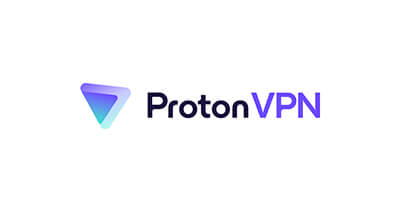
Though relatively new in the market, ProtonVPN features some excellent protocols for safety and privacy. It has high-strength encryption, in-house DNS protection, and uses Perfect Forward Secrecy technology which makes it a stable VPN for privacy.
Surfshark
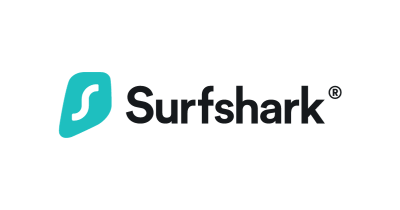
Surfshark is defined by its slick and easy-to-use application that packs a ton of privacy measures. This VPN is optimized for secure browsing, but best of all, it stores no connection or activity logs.
VyprVPN
Among other things, VyprVPN excels in providing private browsing. It has kill switches at multiple levels, with an Automatic Reconnect feature.

This VPN also does a good job in public Wi-Fi protection. The no-logs policy goes without saying.
VyprVPN owns its servers which improvs the privacy and security quite a lot.
How to Effectively Use VPN for Privacy
To get the most out of a privacy VPN, you must first choose the right VPN application for your device. If you need a VPN for your mobile phone, you should get the VPN’s mobile application.
Many VPN services offer applications for iOS, Android, macOS, Windows, and Linux. This gives you the liberty to choose the most appropriate VPN application for your device.
Next, create a robust VPN account with your chosen VPN provider. Freemium accounts usually provide limited services.
So, your privacy being the key aspect, you are likely to need a paid subscription or even a premium account. Take advantage of money-back guarantees to test out a service.
If the VPN doesn’t live up to expectations, cancel and try another.
Privacy Risks Related to VPNs
Even though VPNs are engineered to provide users with online security, you can never be too careful when choosing the best VPN for privacy.
There are several risks involved as will be discussed below. If security is something you take seriously whenever using the internet, you need to stay on the lookout for the following risks:
No-logging policies
Some VPNs do not have no-logging policies. In addition, some of those that claim to have a no-logs policy, actually do keep logs, even if only for as little as 24 hours.
This means that you run the risk of data leakage if a third party accesses those stored logs. The best VPN for privacy stays true to its word on security.
Data leakage
Although most VPNs claim not to leak data, this is not always the case. Many actually leak IP, DNS, and WebRTC traffic daily. When looking for the best VPN service for privacy, check for leak protection and kill switches at the very least.
Are VPN Services Legal?
In most parts of the world, VPNs are perfectly legal. However, some countries have either banned or placed strict restrictions on the use of a VPN.
In nations where the use of VPNs has been restricted, there is usually a clear distinction between approved and unapproved services. For example, the Chinese government has to approve a VPN before it can be used in China.
This suggests you cannot rely on VPNs in China to protect your privacy. In addition, the use of an unapproved VPN can attract hefty fines.
In the United Arab Emirates (UAE), you can be fined more than half a million dollars or be jailed if you use a VPN. The story is similar in Russia and Iran.
The Bottom Line
Some VPN services are free, but to ensure that there’s a guarantee of privacy at all times, it’s advisable to opt for a premium subscription. This will help you mitigate the risks of cyber-attacks and connection throttling.
Choosing the best VPN for privacy is important if you want to avoid the risks of identity leakages. Sometimes it actually improves your internet speeds as well.
When all is said and done, make sure to only use a reputable VPN service. Consider the features that we have addressed above, and check out our recommended list for the best VPN for privacy.
